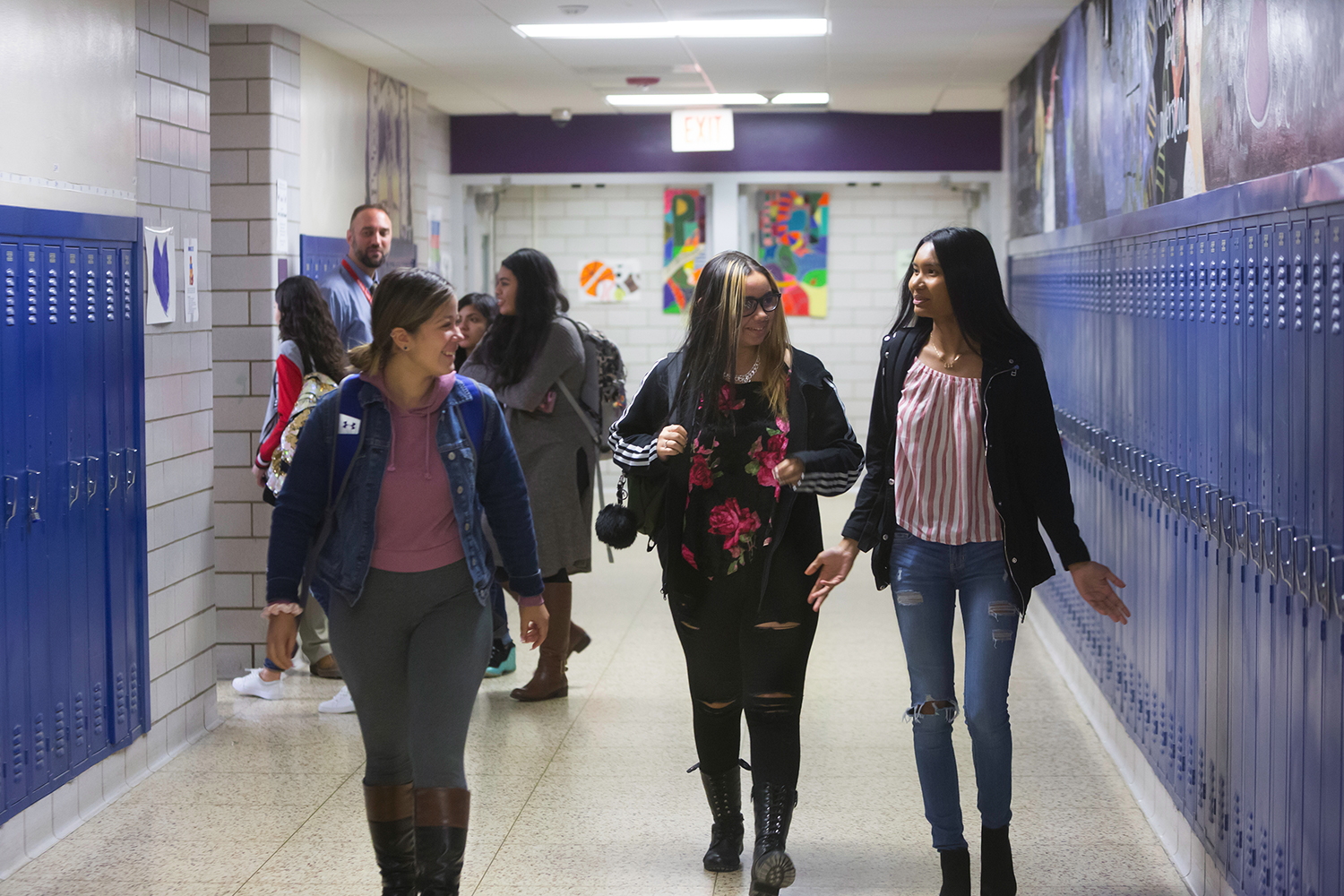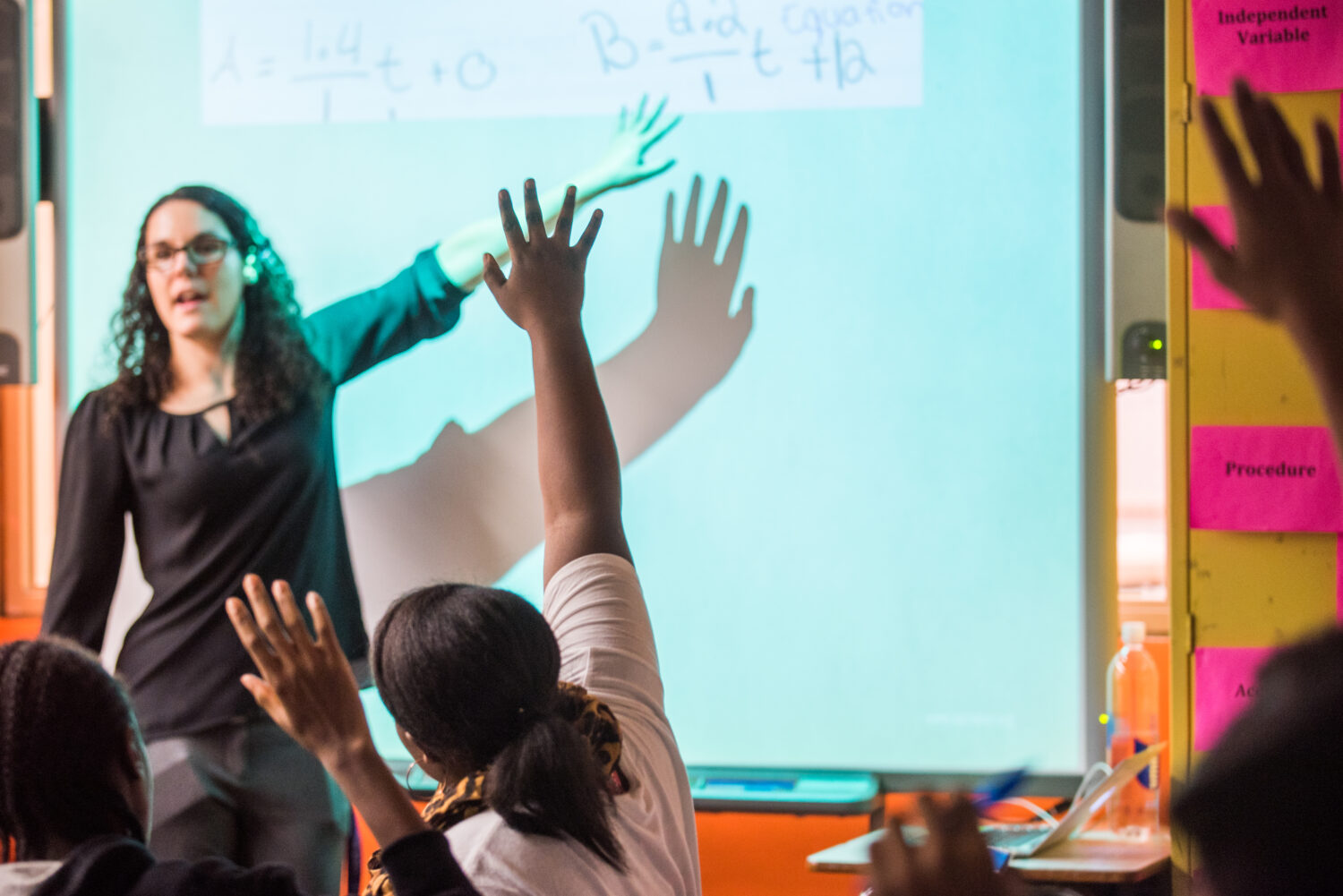Given our focus on high schools and our commitment to strive for impact that advances racial equity, we have taken great interest in the result of the Question 2 ballot vote on November 5th, which eliminated the requirement that a student pass the Massachusetts Comprehensive Assessment System (MCAS) tests in order to receive a high school diploma. As was the case before the 1993 Massachusetts Education Reform Act, every district in Massachusetts will now be on its own to determine what it means to earn a high school diploma. The likely result, based on our state’s history – including what we observed during the suspension of requirements during the height of COVID-19 – is many different graduation standards, and a risk of even deeper disparities in learning experiences and outcomes across the state’s 300+ districts.
At Barr, we believe all young people are worthy of a fantastic high school experience; one that supports them to flourish during their adolescent years and prepares them to pursue their dreams and aspirations. Over the last decade, the Barr Foundation’s Education Program has focused on advancing equity and excellence for high school students through extensive grantmaking, school leadership support, and partnerships across New England. Through this work with schools and communities in Massachusetts and beyond, we’ve had the opportunity to partner with and hear from hundreds of educators, students, and families as they contemplate the purpose of high school and what all young people deserve to know and be able to do by the time they graduate.
A key takeaway from this work: While it is important that local communities take ownership of enacting their unique vision and goals for the high school experience, it is equally important that this is coupled with statewide expectations of what it means to be a high school graduate in Massachusetts. A thriving education ecosystem embraces a balance of both statewide vision and guardrails coupled with local vision and quality implementation. When done well, statewide expectations benefit all students by providing a critical standard for schools to align with and also provide essential protection for students who have not been as well served by their high school experience. The Commonwealth’s parents, educators, and students agree: In a recent poll conducted by Beacon Research, roughly 75% of parents and teachers and nearly 60% of students said that it was important for graduation requirements to be the same across all schools in this state.
So where does Massachusetts go from here? Barr doesn’t have all the answers for what should come next. We do, however, recognize that there is now an urgent opportunity to build new statewide graduation expectations that serve our students and align with the high quality educational experience they deserve.
At Barr, we remain dedicated to supporting the exploration of what might be possible and holding the long view that carefully considers the impact on future generations of students and keeps their interests at the forefront. Aligned with Barr’s value of demonstrating curiosity, we are committed to investing in research for our collective learning about the implementation and impact of graduation requirements in other states. Based on our foundational belief that it is critical for effective change to include the voices of those most impacted, we also aim to learn more about the perspectives of students and families in the Commonwealth. We look forward to sharing the findings from that research in the coming months.
We appreciate the role of state leaders in advancing a new vision for Massachusetts’ high school graduation standards that helps to ensure all students graduate high school with the knowledge, skills, and experiences to thrive in college, in the workplace, and in their communities. State expectations can complement and bolster the important work of teachers and leaders to ensure that the high school experience opens all doors for all students. We hope that the forthcoming research – coupled with input from key stakeholders, including students, families, educators, education leaders, and employers – will be supportive in the conversations and next steps to create this type of quality statewide vision and plan.
We owe it to our young people and the future of our Commonwealth to be clear about the value of a high school diploma.




